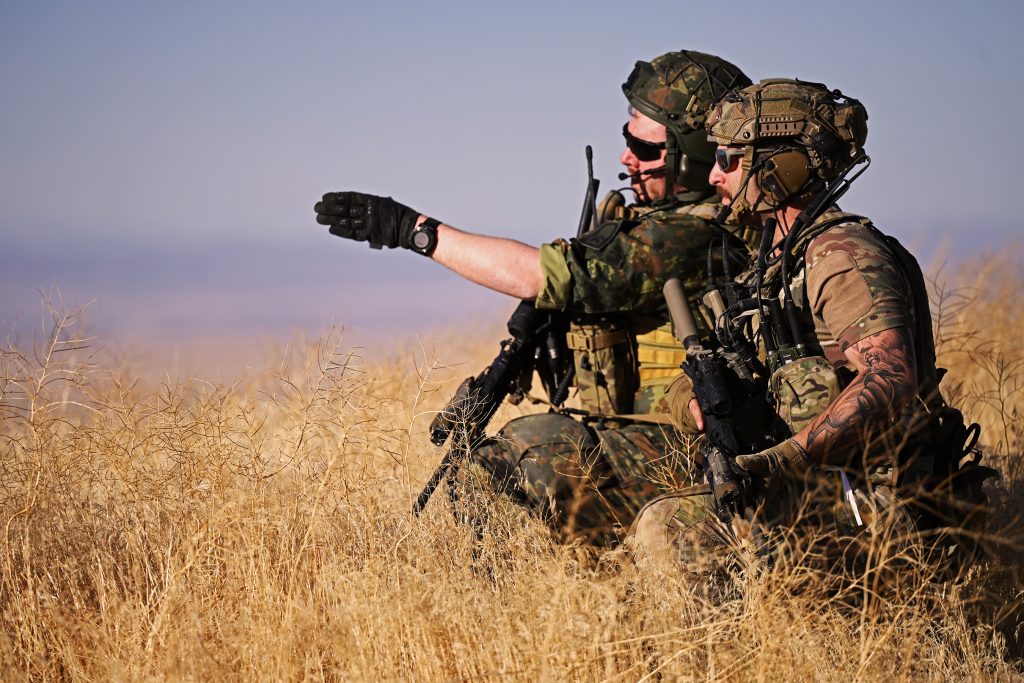German Soldiers Integrate with Idaho National Guardsmen for Field Exercise

Idaho Air National Guardsmen from the 124th Air Support Operations Squadron partnered with the Idaho Army National Guard’s 1-183rd Assault Helicopter Battalion and soldiers from units based in Idar-Oberstein, Germany, to conduct a fully integrated field exercise to validate the Air Guard unit’s past two years of training Aug. 24-29.
The exercise played out on Gowen Field, Saylor Creek Air Force Range and the Orchard Combat Training Center and focused on five basic warfighter pillars: shoot, move, communicate, physical fitness and combat medicine. The field exercise included events corresponding to each of the five pillars, including live fire, convoy and tactical field movements, force-on-force scenarios, expedient field medicine and casualty evacuation.
Tech. Sgt. Alexander Hix, 124th ASOS standards of evaluation program manager, said the German soldiers integrated well with the unit despite the challenges of training in a new environment with unfamiliar equipment.
“They’re proficient in a lot of different areas, but one thing that definitely stood out was their willingness to jump in with both feet, be productive members of the team and try new firsts,” said Hix.
A joint tactical air controller and fire support officer who led the German detachment said seeing the planning process from the U.S. military perspective was a valuable experience for him, as was noting differences in leadership styles.
“What I saw of leadership here was very direct leadership, very good leadership and also very considerate of the men,” he said. “Caring for your men is a very good American strength that we’ve seen here, and I thought that was very impressive.”
He added that the German Armed Forces continued participation in exercises on American soil helps them to plan and develop ways to integrate American and other NATO nation troops into German units as they learn more about their capabilities and strengths.
Capt. Luke Nelson, 124th ASOS assistant operations officer, said the exercise itself provided data points for future improvement but more importantly, provided valuable experience to both the Airmen and their NATO partners.
“A very important piece of this for us is maintaining that relationship and broadening our horizons,” said Nelson. “This gives both their soldiers and our Airmen an opportunity to work alongside international allies in a field environment and to learn from one another. I think any time we can work with our partner nations and practice the craft that we’ve developed over the course of our careers, it’s going to make it far less painful in the event that we ever have to go to war together.”
 Official Government Website
Official Government Website